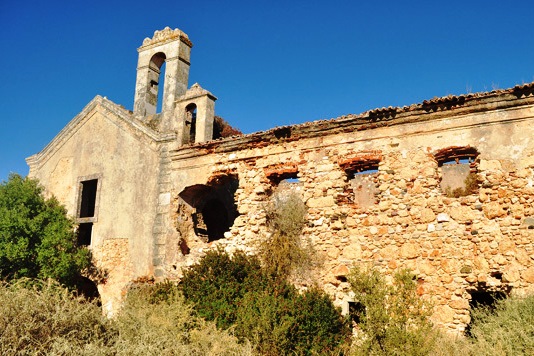Article provided by Meravista.com
Meravista is the world’s largest property portal devoted exclusively to the Algarve. It brings visitors the latest state-of-the art search technology, making it easy to find their perfect property in the Algarve.
- View maps, listings and property details at the same time
- Over 300 standardised property details
- Compare properties side by side
- Save your favourite properties and searches









Portimão – something different around every corner
Did you know?
There are two Neolithic/Chalcolithic burial grounds in the county of Portimão which are believed to date back to between 1600 and 2000 BC. One of the sites is at Monte Canelas, but the more important of the two is in Alcalar, with graves of several types, from megalithic chambers to tombs with false cupolas and side alcoves.
Portimão is a great place to invest in property
A long history
Aside from archaeological treasures confirming the history of the area, there’s no need to search too hard for evidence of Moorish occupation. The numerous water wheels (Noras), buildings made of taiga (a mixture of clay, rubble, sand and lime) and the distinctive shape of the surviving chimneys, are proof enough of a strong Moorish influence.
The majestic building that you’ll see today in Alameda da Praça da República, Portimão’s central square, is the church of the former Jesuit College. Together with the Mother Church, this is one of the most important religious buildings in the city. The original building was constructed during the late sixteenth / early seventeenth century, but was sadly devastated in the 1755 earthquake. However, it has been beautifully restored and holds many wonderful examples of the architectural styles of the 1600s and 1700s.
Just beyond the museum, you can see the ruins of the Convento de São Francisco, a Jesuit convent founded in 1530. The structure was badly damaged in the 1755 earthquake and later the estate was transferred to private ownership. Today it’s owned by the family Souza Coutinho who, it’s said, had dreamed about developing a luxurious hotel on the location, but to date they haven’t realised their dream. We believe that the local council is trying to buy the remains from the family. As the estate is private property, it can’t be visited, but the size and scope of the building can be seen from walking around it and there’s a good view of the layout from the nearby Restaurante Clube Naval de Portimão, where you can grab a tasty tosta mista (toasted sandwich) and a cold beer, while you view the convent ruins.
transferred to private ownership. Today it’s owned by the family Souza Coutinho who, it’s said, had dreamed about developing a luxurious hotel on the location, but to date they haven’t realised their dream. We believe that the local council is trying to buy the remains from the family. As the estate is private property, it can’t be visited, but the size and scope of the building can be seen from walking around it and there’s a good view of the layout from the nearby Restaurante Clube Naval de Portimão, where you can grab a tasty tosta mista (toasted sandwich) and a cold beer, while you view the convent ruins.
The Great Earthquake of 1755 destroyed much of the town and sent Portimão into economic decline. But towards the end of the 19th Century, trade, exports, milling, fishing and fish-canning helped to turn the economy around. These successful activities continued into the 20th Century and it was in 1924 that Portimão was declared a city by the then President of the Republic, Manuel Teixeira Gomes.
Modern day Portimão
There’s something different around every corner in Portimão, making it a great place to live and explore. Over the last three decades, Portimão has emerged as a one of the Algarve’s main tourist destinations. To meet the demand, hotel complexes, apartment blocks, new housing developments and leisure facilities have altered the landscape considerably, but Portimão has, however, held on to its heritage and traditions.
Beautiful beaches
The beaches are superb and there’s a vast choice of leisure activities, restaurants and entertainment too - in fact, Portimão has it all. Alvor beach and Praia da Rocha are probably the most popular spots for holiday makers seeking sun, sand, nightlife and an all-round good time, but don’t overlook the great beach at the south end of Portimão itself (right at the bottom of Avenida São Lourenço da Barrosa) – it’s an unexpected and beautiful refuge from the hustle and bustle of the city.
Superb shops
Portimão offers some of the best shopping in the region, including the state-of-the-art Aqua mall. If you’re a keen shopper, don’t pass up the chance of visiting the Lojas Chinês (Chinese shops) while you’re in the area. These Chinese-run emporiums are common in Portugal and they sell everything under the sun. Portimão has its fair share – the three that are in close proximity just back from the riverfront are some of the best you’ll find in the Algarve. Whether you’re hunting for a Maneki-neko, a new jockey wheel for your trailer, wool to knit your Christmas jumper or a set of curtains for your lounge, you’ll almost certainly find them for sale in the Lojas Chinês.
Also along the same stretch, the branch of Paga Pouco (Pay Little) is worth a mention. A great fabric store and, as its name suggests, it’s far less expensive than some of the high street alternatives.
During the summer months, street traders line the waterfront touting their wares, ranging from tribal masks to flip flops. A walk along the dock as the sun’s setting is the perfect end to any day.
Excellent eateries and entertainment
There are countless restaurants in and around the city, serving a range of traditional Portuguese to International cuisine. Fresh fish is always on the menu of course, particularly at the restaurants on the waterfront, and Portimão is the venue for the most famous annual sardine festival in the region.
Cineplace Continente is Portimão’s six-screen cinema. For a more intimate picture house experience there’s Algarcine Cinemas de Portimão. Both cinemas show the latest releases in English.
The Teatro Municipal de Portimao holds many events throughout the year, from plays to pantomime, ballet and music. Many of the performances are in Portuguese, but some are in English. The ballet and music shows can be enjoyed by all and the sound in the theatre is fantastic.
Portimão Arena is one of the newer additions to the city’s list of venues. Love or hate its aircraft hangar style design, there’s no denying that it’s in a great location and perfect for hosting a variety of sporting events, exhibitions, conferences and concerts.
Golf is of course on par in Portimão, with a choice of six impressive courses in the area. There are indoor swimming pools, tennis clubs and a wealth of other sporting facilities open to residents and visitors too.
Autodromo International Algarve is Portimão’s International racetrack. The venue hosts several key racing events and also has a racing school, go karting tracks and an off road track.
There’s always plenty for everyone to do and see in Portimão. Just about every type of boat trip imaginable is on offer, from tours of the caves to exhilarating powerboat rides, dolphin spotting and pirate ship cruises. Fishing expeditions and a range of water sports are also available, including diving - there are registered dive centres in Portimão. And, for those seeking a real adrenaline rush, Alvor Aerodrome offers skydiving.
Start your Portimão property search here
Whether you're seeking a city apartment, a stylish townhouse or an exclusive villa with a luxury pool, given the diverse array of properties for sale in and around Portimão, it is more than likely that you'll find what you’re looking for.